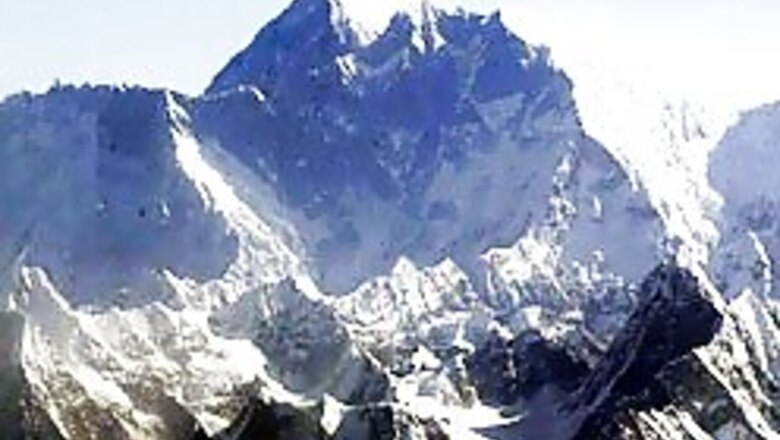
views
Kathmandu: An American, who had enrolled in a much-hyped research expedition to Mt Everest, has been kicked out by Nepal's security forces after searches unearthed a pro-Tibet banner in his luggage, media reported on Wednesday.
Both Nepal and China have stepped up vigilance to prevent anti-China protests in the Himalayan region ahead of the Olympic torch march.
The American, who was not named, was part of a 11-member Eco Everest Expedition that kicked off from Kathmandu on April 6 in a bid to draw the world's attention to the perils of global warming, especially the threat from potential glacial lake outbursts in the Himalayan region in north Nepal.
Supporting the expedition is the UN Environment Programme and International Centre for Integrated Mountain Development, where China is a board member.
"The newly created security force guarding Mt Everest to control possible anti-China protests Monday barred a US national... after he was found to be carrying a pro-Tibet banner," said the Kathmandu Post. "After being sent back, he is on the way to Kathmandu."
The banner read "Free Tibet", other media reports added.
In an unprecedented move this year, Nepal's culture, tourism and civil aviation ministry has made it mandatory for all climbers attempting the world's highest peak to sign a document that says that they will not undertake any anti-China protests or carry any material that is likely to affect Nepal-China ties.
They have to also agree to submit their baggage to security checks and deposit all electronic and communication equipment with security personnel. They have been warned of legal action if found guilty of violating the agreement.
The censorship started after China asked Nepal to halt all Everest expeditions this summer till the Olympic torch rally reaches the 8,848m peak. This is expected to take place by May 10.
The Chinese request came as the torch rally through world capitals stirred up protests, with demonstrators asking Beijing to withdraw from Tibet and stop its relentless crackdown on Tibetans in Tibet.
Since last month, when the Tibetan diaspora mourned the failure of an uprising against the Chinese occupation nearly 50 years ago, Tibetan refugees in Nepal have kept up regular protests in front of the Chinese embassy in Kathmandu and the UN headquarters.
The use of force by armed police has failed to discourage the protesters, who include women and monks.
Angered by the continuing protests in Nepal, which raise fresh questions about China's human rights record ahead of the Olympic Games in Beijing, the Chinese authorities met Prime Minister Girija Prasad Koirala twice this month to express their displeasure at Kathmandu's inability to snuff out the protests.
Alerted that the Koirala government is now likely to give way to a new one headed by the former Maoist guerrillas, once rejected by China as "anti-government forces who tarnished the name of Chairman Mao", a Chinese delegation met Maoist chief Prachanda and other leaders of his party Tuesday.
It was a bid to appease them and win a fresh pledge that the Maoists would continue to honour the earlier governments' allegiance to the "One China" policy that regards Tibet as an integral part of the communist republic.
The expulsion of the American climber is bound to trigger an outcry among mountaineers.
Renowned Italian climber Reinhold Messner, who is an advisor to the expedition, has already criticised the Olympic torch march while Hollywood icon and the Dalai Lama's personal friend Richard Gere has called it a mockery.















Comments
0 comment